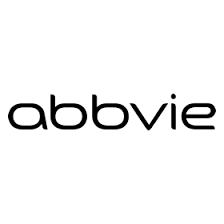Article
Risankizumab for Crohn’s Disease Linked to Clinical Improvements, Remission
Author(s):
New phase 3 data show the IL-23 inhibitor is associated with clinical remission and endoscopic response.

Data from 2 phase 3 induction studies of risankizumab (SKYRIZI) demonstrate that the interleukin-23 (IL-23) inhibitor can lead to clinical improvements in patients with moderate to severe Crohn’s disease. These findings were published by AbbVie.
The 2 studies — ADVANCE and MOTIVATE — showed that both doses of risankizumab (600 mg and 1200 mg) met both primary endpoints of clinical remission and endoscopic response. The investigators measured clinical remission by Crohn’s Disease Activity Index (CDAI) and two-component patient-reported outcome (PRO-2).
As such, in the ADVANCE study, 45% patients treated with 600 mg achieved remission per CDAI, compared with 42% of patients treated with 1200 mg, and 25% treated with placebo (P < .001).
According to PRO-2, 43% and 41% of patients treated with 600 mg and 1200 mg, respectively, achieved clinical remission—while 21% of placebo-treated patients achieved remission (P < .001).
Furthermore, a greater proportion of patients treated with both doses achieved endoscopic response at week 12 (40%, 600 mg; 32%, 12 mg; 12% for placebo; P < .001).
In the MOTIVATE study, 42% and 41% of patients treated with risankizumab 600 and 1200 mg, respectively, achieved clinical remission at week 12 per CDAI—versus 19% of patients who received placebo (P < .001).
Per PRO-2, 35% who received 600 mg and 39% who received 1200 mg reached clinical remission, as did 19% on placebo.
And finally, 29% and 34% of patients who received risankizumab 600 mg or 1200 mg achieved endoscopic response, respectively, versus 11% in the placebo group (P < 0.001).
The data also reported that significant clinical and endoscopic outcomes were observed in regard to key secondary endpoints. Furthermore, symptom improvement was observed as early as week 4.
"Helping patients achieve both clinical remission and endoscopic response early is paramount when treating Crohn's disease," said Remo Panaccione, MD, professor of medicine and director of the IBD unit, University of Calgary, in a statement.
"It was exciting to see that a significant proportion of patients treated with risankizumab achieved both measures after 12 weeks of treatment, as well as achieving symptom improvement at week 4. These data are encouraging as we continue to evaluate the potential of risankizumab in Crohn's disease."
The overall safety profile of the IL-23 inhibitor was consistent with previous findings, and there were no new safety risks observed.




